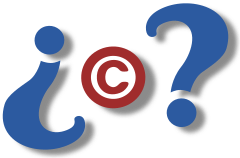Tuesday, May 10, 2011
Schoology Presentation on Guild Wars 101 Unit for LMO course
Labels:
Full Sail,
Guild Wars,
LMO,
LMS,
Schoology,
VirtuGuild
Saturday, May 7, 2011
Check out how you can use gaming in the classroom
Are you interested in using gaming to teach in your classroom? You should check out the great work that Lucas Gillispie has done with his WoW in School project as well as the flyer below:
http://wowinschool.pbworks.com/f/PCSGaming_Flyer.pdf
Labels:
classroom,
gaming,
Lucas Gillispie,
Minecraft,
WoW in School
James Paul Gee on Games and Learning

Check out this Podcast with James Paul Gee on Games and Learning:
http://edreach.us/2011/05/04/edgamer-episode-10-games-and-learning-with-james-gee/
Friday, May 6, 2011
Wk 1 Wimba Session Archive

I found that the Wimba archive had a lot of redundant information that we had already reviewed in the intro videos we were supposed to have watched before the session for week one. There was some new helpful information and questions asked by other students in the course to help make some clarifications. I did however, hear some helpful information on our Literature Review, which I had already turned in prior to the Wimba session that does worry me a bit. I did not put the extra "return" between each paragraph. I only put it between each subsection per the checklist. I also did not know to not put the page break between the literature review and the references, so I am worried about that as well. Apparently I will need to make a few more adjustments to it before it is web ready. I did email Jason though after watching the archive to see what I should do.
I did appreciate how in depth the discussion went into the AR project from the literature review, to the website, and on to the abstract itself. It does allow us the opportunity to begin letting the wheels turn on what is coming up so that we are better prepared. It was good to know that we shouldn't copy and paste our learning domains into the cycles from the ADDIE process. I did that during my cycle one and will have to go back to correct it. I will as well have to go back and move my data to the bottom of the prompts per the Wimba discussion, so this has given me some helpful information.
I can honestly say that I am a bit nervous about the publishing/leadership project. I would rather do a presentation, but I find that I am still not very comfortable with speaking in front of others. I am still tossing the idea back and forth with myself, but I do see the benefit and purpose of this project. This session was helpful though in that I did learn quite a bit about this leadership project so that I can be better prepared. I look forward to making my blog post now discussing which of these I will choose.
Thursday, May 5, 2011
Wk 1 comment #2 - David Remillard
 |
| Response to David Remillard |
David,
I love the idea of teaching students how to become "good digital citizens." I used to do things like this with my Girl Scout troop. I completely agree that we as teachers to need to share in the responsibility of teaching our students about the copyright laws along with its fair use. It sounds like you are already getting a good handle on this and even giving your students other avenues to explore in obeying these copyright laws. I do feel that it would be easier as an educator though to have one of those little books that was shared with us in the videos we watched this week to help give us an overview of exactly what we should be teaching our students in regards to copyright considering the digital age we are in.
I love the idea of teaching students how to become "good digital citizens." I used to do things like this with my Girl Scout troop. I completely agree that we as teachers to need to share in the responsibility of teaching our students about the copyright laws along with its fair use. It sounds like you are already getting a good handle on this and even giving your students other avenues to explore in obeying these copyright laws. I do feel that it would be easier as an educator though to have one of those little books that was shared with us in the videos we watched this week to help give us an overview of exactly what we should be teaching our students in regards to copyright considering the digital age we are in.
Original Post:
Wk1 reading: copyright issues: "Digital literacy and digital citizenship has been a recent topic among the faculty at my school. We want students to be able to find digital content and be able to analyze its validity. The phrase good digital citizen has many meanings depending on the context that you are using it in. One area that I have been focusing on is copyright laws and how this relates to my students being good digital citizens. In the education field I see photos being pulled off the Internet without any mention of the artists or link to the original photograph. Students dragging and dropping photos into a project without any understanding of the copyright laws or fair use rights for education. This weeks reading on copyright issues identify and describe the key points that students and teachers should know. Teachers should be giving students resources to copyright free material. Students should understand what can be copyrighted and what cannot be. When we look at copyright issues students today are producing more video projects to present during class time. I find they choose popular songs recorded by artists and do not have permission to use their music. By offering students alternative ways to produce their own original music for soundtracks or introductions to presentations we are fostering more creative projects but also educating students how to be a good digital citizen. Copyright issues go beyond the classroom when you look at school district performances, battle of the bands, and dances for fundraisers. In conjunction with our town officials we pay a licensing fee to broadcast music Inc. that gives the artists and composers royalties for the music that we will broadcast during special events. This is a general blanket that covers the town and the school district to perform without infringing on copyright laws. Finally the keyword still is education. Teachers need to understand the black-and-white of copyright laws and teach students how to access media responsibly."
Wk 1 comment #1 - Michael Wood
I can totally relate to your experience of drawing pictures from comic books when you were younger. I have always loved to draw and that is partially what got me into web design. I spent many a day drawing images from magazines, books, television, or whatever else interested me at that moment in time. My daughter has now followed in my footsteps, but has so much more media available to her to create even more than I ever could.
I agree that many teachers do not emphasize to students that they shouldn't use copyrighted images or for that matter what is even considered copyrighted. My daughter is taking a graphic design course this year and they have had discussions over copyright, which I feel is appropriate given the type of course that it is.
I also agree that Creative Commons is a blessing even though as you stated it can be rather difficult to find exactly the type of images you are looking for, but it is getting better. There are so many graphic sites available on the internet, but they are very costly as you mentioned. Even as a web designer the only way I am able to use those graphics on my clients websites is to charge them for the additional costs. I do think that having a resource available for teachers and students to use that is similar to those other sites, at perhaps a more feasible price range would be more beneficial to a lot of people. It is a thought and considering all the photography and art students there are in the schools around the world, one that I think could work.
I agree that many teachers do not emphasize to students that they shouldn't use copyrighted images or for that matter what is even considered copyrighted. My daughter is taking a graphic design course this year and they have had discussions over copyright, which I feel is appropriate given the type of course that it is.
I also agree that Creative Commons is a blessing even though as you stated it can be rather difficult to find exactly the type of images you are looking for, but it is getting better. There are so many graphic sites available on the internet, but they are very costly as you mentioned. Even as a web designer the only way I am able to use those graphics on my clients websites is to charge them for the additional costs. I do think that having a resource available for teachers and students to use that is similar to those other sites, at perhaps a more feasible price range would be more beneficial to a lot of people. It is a thought and considering all the photography and art students there are in the schools around the world, one that I think could work.
Michael Wood's MAC-Copyright Response original post:
Wk1 Reading: Copyright Issues
 Being in an industry for the past 15 years that requires you to be creative and observe those copyright laws I can understand where a lot of the reading this week comes from. My web design business has been around since 1996 and I can readily admit to being in that group of people who believed several of the "big myths" revolving around copyrighting when I first began in this business. Basically I had an incident with a wedding website that I was creating where an image I used as the logo per the client was apparently a copyrighted image created by someone else. Long story short, I had to agree to remove the image after proof of copyright and learned to be a bit more careful from that point forward.
Being in an industry for the past 15 years that requires you to be creative and observe those copyright laws I can understand where a lot of the reading this week comes from. My web design business has been around since 1996 and I can readily admit to being in that group of people who believed several of the "big myths" revolving around copyrighting when I first began in this business. Basically I had an incident with a wedding website that I was creating where an image I used as the logo per the client was apparently a copyrighted image created by someone else. Long story short, I had to agree to remove the image after proof of copyright and learned to be a bit more careful from that point forward.  There was so much information given to us during the reading and videos this week on copyright information that it was almost overwhelming. However, much of the information was helpful to answer many questions that have always just sort of loomed out there in the world of copyright law. I know that during our time here at Full Sail University we have been told not to use copyrighted material without prior permission and that we are better off creating our own original images, music, etc... I know that Creative Commons has become many of our friends throughout the EMDT program and something I had not heard of before this program.
There was so much information given to us during the reading and videos this week on copyright information that it was almost overwhelming. However, much of the information was helpful to answer many questions that have always just sort of loomed out there in the world of copyright law. I know that during our time here at Full Sail University we have been told not to use copyrighted material without prior permission and that we are better off creating our own original images, music, etc... I know that Creative Commons has become many of our friends throughout the EMDT program and something I had not heard of before this program. The duration of time that a copyright lasts surprised me (lifetime +70 years or 100 years for a company). That along with the logistics of what can be determined as "fair use" can be confusing. As an educator there are time when you just want to use a clip of something because it can help get your point across to the students using something they have likely seen before or are familiar with to help build a connection to the subject matter, but that is where you apparently have to be careful. While it was noted that Teachers were one of the four different areas that could use copyrighted material it also was noted that if the lesson could be taught without that material then it would not be considered "fair use". It all sounded like a lot of lawyer speak and verbal jargon to confuse the masses in order to keep them scared about using copyrighted material.
 After watching Larry Lessig’s TED Talk about Remix Culture, I find that my daughter is one of those teenagers who uses her creative video remixes as a means to "be heard" so to speak. For the past several years she has been creating these remixes using popular songs and anime videos that she remixes together as well as some of her own Flash creations to share what I consider to be a great talent with others. Now I worry about the copyright repercussions to her works that she shares freely on her YouTube channel and her Facebook page. In my opinion taking that creativity away from our children is as bad as removing the creativity from schools. She is currently taking Graphic Design and her teacher has told the students that if they change and image by more than 75% from the original image that they are not breaking any copyright laws. How true this is I am still unsure of even after reviewing all of our reading this week, but I do know that at least she is getting some copyright knowledge while she is expressing her creativity. I just know that as a parent and educator that I feel it would be wrong to stifle this creativity and from allowing our youth to express themselves in one of the only ways they know how and that is through the digital technology that is so easily accessible to them.
After watching Larry Lessig’s TED Talk about Remix Culture, I find that my daughter is one of those teenagers who uses her creative video remixes as a means to "be heard" so to speak. For the past several years she has been creating these remixes using popular songs and anime videos that she remixes together as well as some of her own Flash creations to share what I consider to be a great talent with others. Now I worry about the copyright repercussions to her works that she shares freely on her YouTube channel and her Facebook page. In my opinion taking that creativity away from our children is as bad as removing the creativity from schools. She is currently taking Graphic Design and her teacher has told the students that if they change and image by more than 75% from the original image that they are not breaking any copyright laws. How true this is I am still unsure of even after reviewing all of our reading this week, but I do know that at least she is getting some copyright knowledge while she is expressing her creativity. I just know that as a parent and educator that I feel it would be wrong to stifle this creativity and from allowing our youth to express themselves in one of the only ways they know how and that is through the digital technology that is so easily accessible to them.
Subscribe to:
Posts (Atom)

